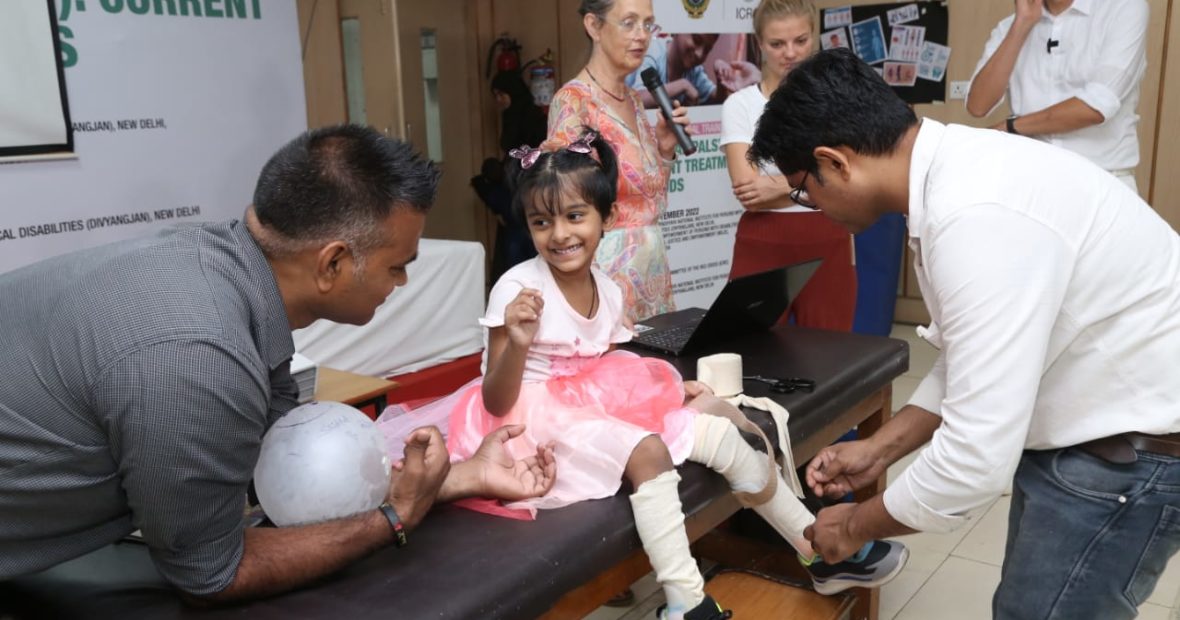Children with cerebral palsy (CP), a common childhood neurodevelopmental disorder, require a strong support system embedded in an inclusive and accessible community. Therefore, individuals and their families must have access to therapy, assistive technology, and affordable care to thrive.
In collaboration with the Pandit Deendayal Upadhyaya National Institute for Persons with Physical Disabilities (PDUNIPPD), the ICRC Regional Delegation in New Delhi conducted a five-day workshop on ‘Clinical Training on Cerebral Palsy – Current Treatment Methods’.
“For our children, these workshops are very helpful. And I am hopeful that my child will continue to benefit from such programmes,” said the parent of a child with CP, who attended the workshop.
During the workshop, physiotherapists (PTs), occupational therapists (OTs) and prosthetists and orthotists (P&Os) of four national training institutes received hands-on training to enhance their knowledge and clinical skills. The program promoted interdisciplinary teamwork among professionals involved in managing CP and other neurodevelopmental conditions in children. The resource personnel were a team of three international experts from Human Study, Germany.
“This child in the workshop was sitting and looking at his knee and was severely disabled. We gave him another sitting position and got him better trunk control. We also worked with him on muscle strength. A couple of days later, he was walking around and playing football, and there was so much more self-esteem and optimism in his eyes”, observed Andrea Espei, International expert, Human Study, Germany.
It is essential to set goals and plan appropriate treatment interventions for children with CP through an interdisciplinary approach among therapists and orthotists. These training programs facilitate the exchange of knowledge and equip professionals with the latest clinical evidence and treatment approaches.
“Such workshops are very effective, and when I spoke to some of the patients and some of their parents, they were very happy. Moreover, the personal attention given by the ICRC teams and IPD, really appealed to the patients”, said Meena Kumari Sharma, Director, PDUNIPPD.
Through its Physical Rehabilitation Program (PRP) in India and other countries, the ICRC provides services to promote mobility and functional independence for children with CP.
“For us, it is very important to work with the sources in the country that are producing manpower and knowledge and try to assess their needs and where we can collaborate and exchange and share knowledge,” said Navid Dadbin, Regional PRP Manager.
Among the main focuses of the PRP’s work is strengthening existing rehabilitation services. A service user’s rehabilitation is not complete until they regain mobility, allowing them greater autonomy and inclusion in society.
Watch highlights from the workshop in the video below:


